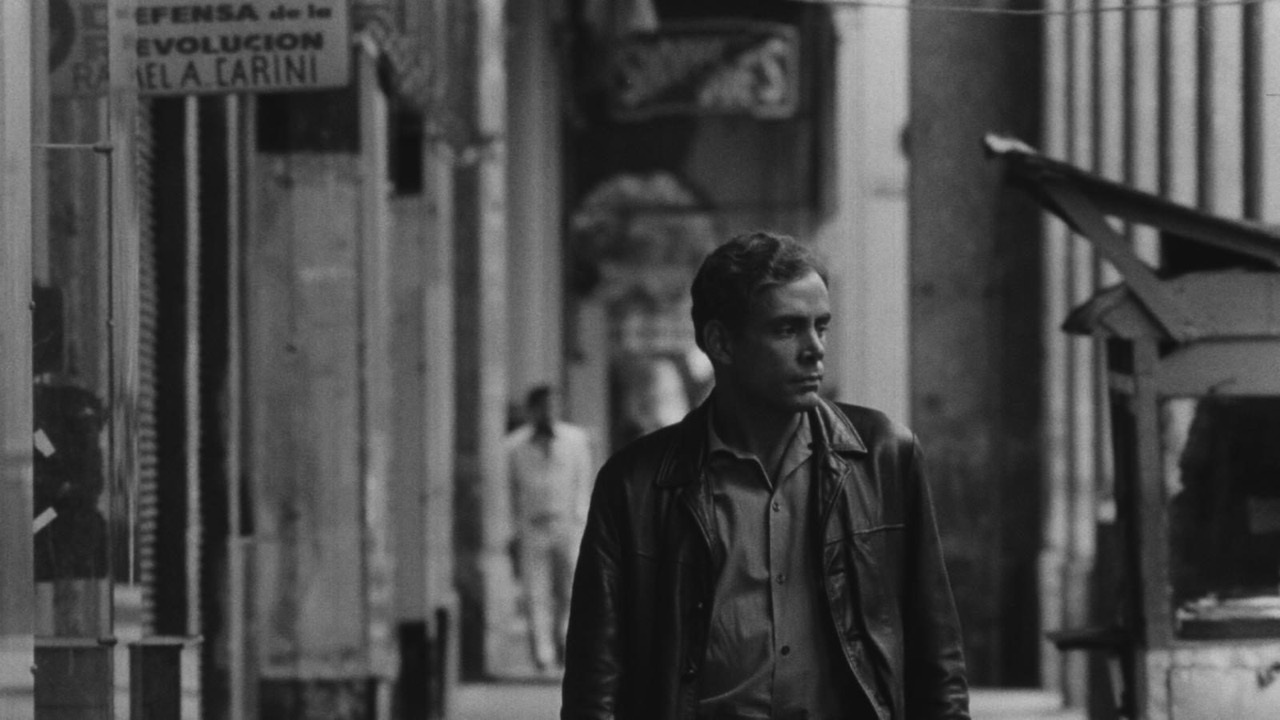A Cuban man, Sergio Carmona Mendoyo (played by Sergio Corrieri) finds himself sauntering through memories of life past, while all around him - and his bourgeoise way of life - the Castro-led Revolution is transforming and re-shaping the reality of Cuba and its people.
The story, set in the early years of the 1960s, (yet filmed 9 years after the 1959 Revolution) offers us a glimpse into the life of an aspiring writer and his decision not to leave Cuba for America. The film starts with a kick; through the loud sound of rolling drums we are catapulted into Sergio’s life and, most importantly, into his thoughts. We are part of an internal monologue and guided through the scorching and shattered streets of Cuba in a delicate, yet powerful monochromatic tale.
Memories of Underdevelopment is a mix of fiction and documentary between a past of lived experiences and a future of unsure progression, tormented by the impending national crises. The director takes us on a journey through historical facts blended with artistic fabrications, creating an “alternative” reality filled with contradictions, swinging emotions and fascinating chiaroscuros.
By following Alea’s camera through the streets of Cuba, into the home, heart and mind of the middle-class protagonist, we grasp the crude, the raw and the ugly aspects of life together with the beauty of love, passions and culture. Two revolutions are happening on the screen at this moment. The vigorous social revolution and the glorious aesthetic revolution of Cuban cinema.
Sergio walks and wonders, he hates and loves, he moves and waits, he talks, laughs, cries and creates a whole world around him. He despises the uneducated lascivious masses, claiming that feelings and emotions are a sign of weakness, of a primordial state. Full of inconsistencies and conflicts, he embodies the all-familiar feeling of intellectual cowardice and appears to be on an everlasting search for true identity, sexual fulfilment and social justice (aren’t we all?).
The historical relevance of Memories of Underdevelopment is still strong today. There is a need for films with meaning, that are more than just depictions of exotic lands, representing nothing more to us than exciting holiday destinations. We need to move away from the over-romanticization and over-eroticization of culture in Latin America.
With audacity, idealism and class, Alea shows how frustration, alienation, simplicity, regression and progression are better portrayed without the need to generalize or stereotype. The feeling we get from Memorias is that there is so much more behind the camera’s eye. The characters are true, they are raw, regardless of their social position, united by a poetic idealism that Alea transformes into art. An art that is part of social change rather than art for art's sake.
Today, over 50 years after Memorias was made, our lives being busier and more individualistic, it reminds us that a different way of thinking, a different way of life is happening outside of our own private world.
To sum up, the film is a cinematic example of great visual beauty, a black and white torpedo of love and lust, an intellectual and, at the same time, naïve portrait of distinct Cuban classes, a window into political upheaval and rebellion. Some of us today may still relate to Sergio, trapped in a limbo between action and resistance, fight or comfort. Just like him, today's viewers might also feel defeated and left powerless by violence, repression and changes unfolding while being spectators rather than the creators of individual and collective destiny. Are we, like Sergio, simply powerless observers of change? The questions go on...
All the same, the enduring message of this film is how we should always have the right to turn even the most tragic of stories into an everlasting and beautiful piece of art, truthful to our ideologies, emotions and roots.
















